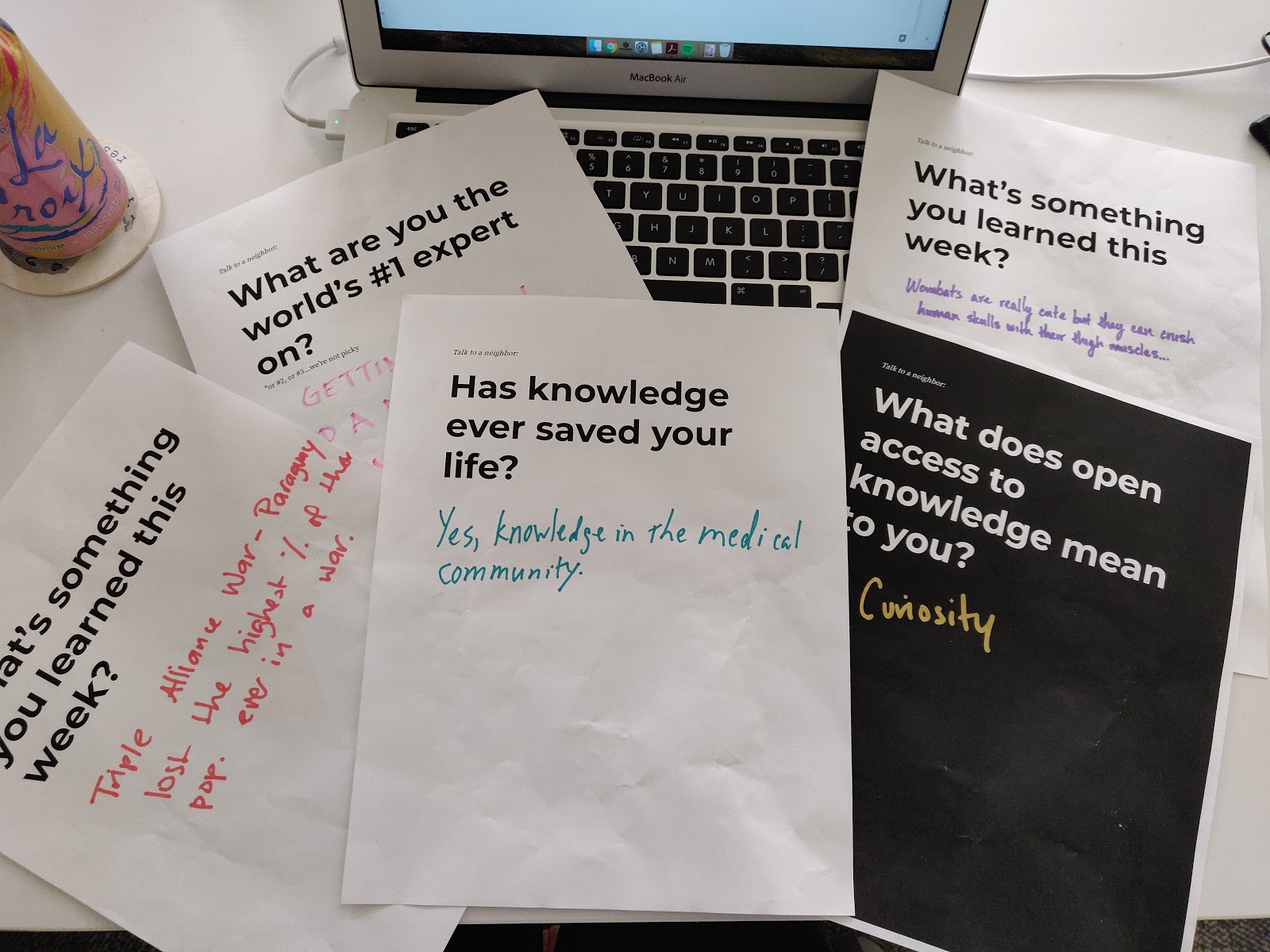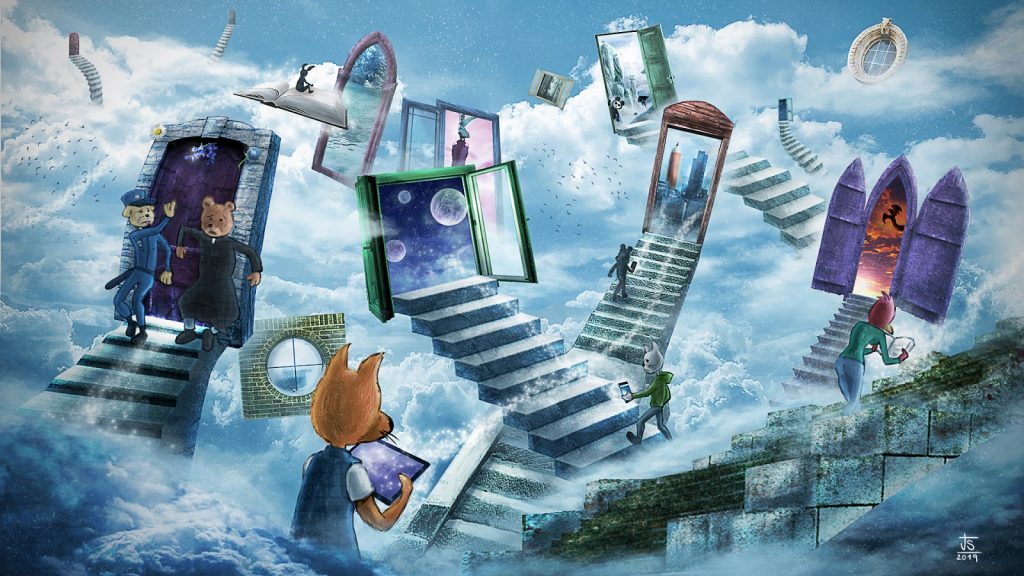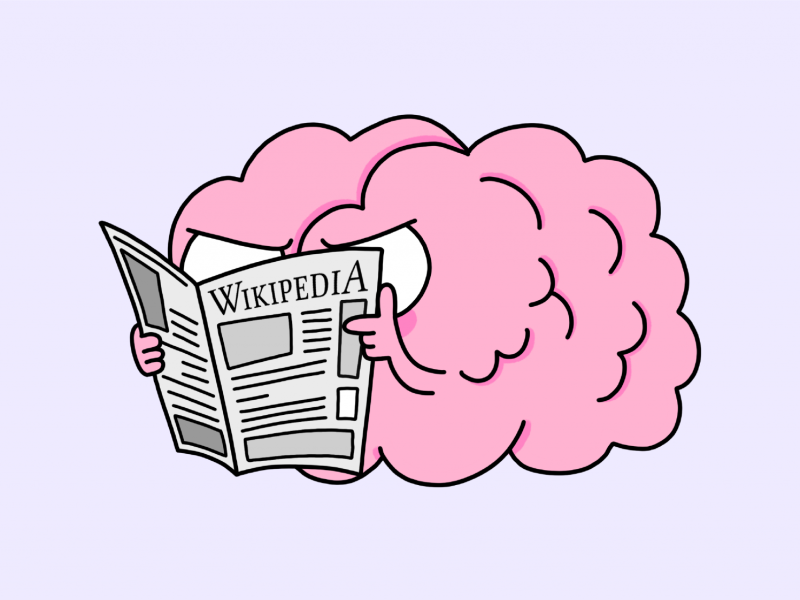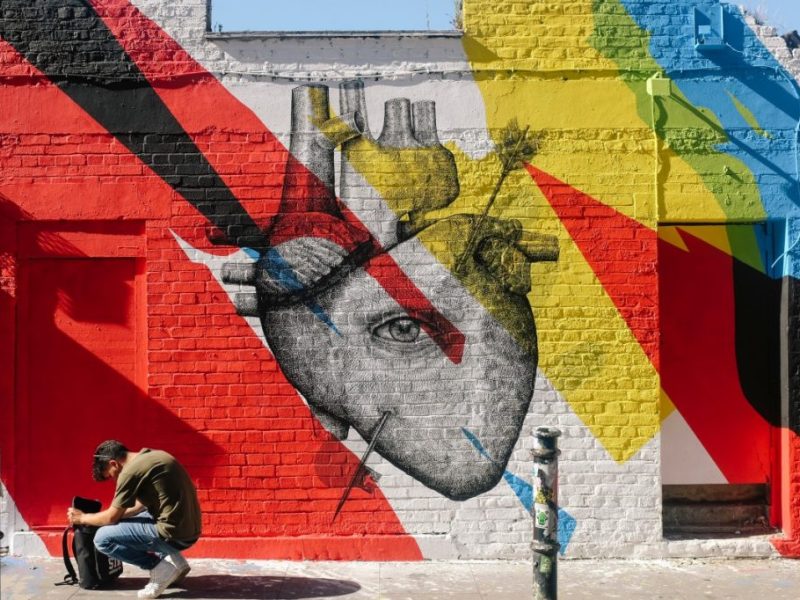What does open access to knowledge mean to you?
That was the question we posed to entrants in the Heart of Knowledge contest, an international arts competition the Wikimedia Foundation launched this April. We were blown away by the submissions we received from artists and writers across five continents. According to entrants’ self-reported data, our youngest participant was 19 and our oldest was 80.
We shared the entries with a distinguished panel of volunteer judges. They’ve taught the next generation of filmmakers, created artist collectives and magazines, inspired youth writers in San Francisco, written books, led design teams, and painted on Ariana Grande. We are grateful to these people for their expertise and support as judges: Burnt Roti Magazine founder Sharan Dhaliwal; 3D installation artist Alexa Meade; photographer and interdisciplinary artist Jonathan Fung; new media and installation artist Eliza Barrios; author and TED speaker Kio Stark; writer and designer Erika Hall; 826 Valencia Tenderloin Programs Director Jillian Wasick; and Electric Literature’s Executive Director (Halimah Marcus), essays editor (Kelly Luce), and editor-in-chief (Jess Zimmerman).
They selected grand prize winners Nanzi Muro, Hina Husain, A. Molotkov, and Sara Lynn Burnett. The Heart of Knowledge “zine” features the work of those grand prize winners as well as runners-up Julia Whitty, Opeyemi Owa, Ashley Ding, Jessica Shilling, Kathryn Garner, Elena Tatiana Chis, Jose Sender, Hal Y. Zhang, Jonathan Qu, Wallace Kaufman, Teighlor McGee, Rafael Davis, Abhilash Jayachandra, Joshua Chalifour, Jennifer Sears, and Hannah Cattanach.
These artists and writers spoke to the meaning of knowledge in their lives in forms that ranged from the concrete to the abstract, personal to philosophical. Many spoke to the power and necessity of collective memory: in the poem “A Fatal Loss of Control / The Black Disability Anthem,” Teighlor McGee wrote:
For every one of us who is stolen by a world
that is in a committed long term relationship with our oppression,
there will be another
who will preserve that memory, so that we can continue to equip one another with the
tools to survive in the way we have dreamed of.
Poet Rafael Davis wrote:
Women and men must fill their reservoir of our human knowledge
So that we have the know-how to pull others up the mountain and dispel shadows
dancing on caves.
Julia Whitty’s work reiterated the theme of knowledge as illumination. She submitted a series of photographs created with images from Wikimedia Commons. “I digitally manipulated them until they no longer resembled the original image at all,” she said, “but are bursting from the light within the darkness. That is what open access to knowledge means to me.”

On 11 July, we celebrated the conclusion of the contest at the Wikimedia Foundation’s headquarters in San Francisco, California, handing out limited-edition print copies of the contest zine and inviting audience members to share their own stories in response to questions like “What’s something you learned this week?” and “Has knowledge ever saved your life?”

We heard responses that ranged from the whimsical (wombats can crush skulls with their butts) to the serious (for an audience member whose family member was fighting cancer, advances in medical research were life-saving knowledge).

By cultivating a community discussion about the forms of knowledge at play every day in our lives, we hoped to make the point our contest participants did so beautifully with their work: the more we know, the better. That’s why we champion all the world’s knowledge for all the world’s people. We hope you’ll join us.
Check out the full Heart of Knowledge zine, including all the winning entries, over on Wikimedia Commons.
• • •
Adora Svitak, Communications Associate, Communications
Wikimedia Foundation



